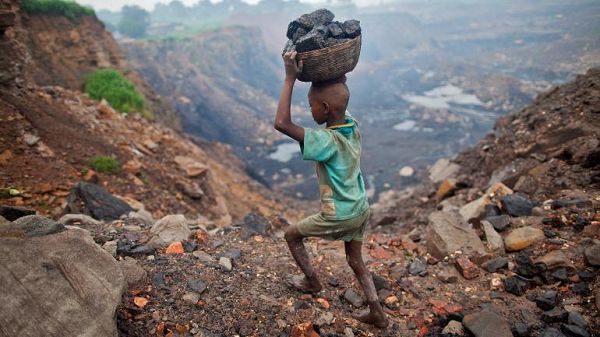Modern Slavery And Forced Labour Are Evil – TUC
- Home
- Modern Slavery And Forced Labour Are Evil – TUC

Modern Slavery And Forced Labour Are Evil – TUC

Dr Yaw Baah, Secretary-General, Trade Union Congress (TUC), has described modern slavery and forced labour as evil, which ought to be stamped out by all.
Dr Baah was speaking at a TUC and LO -Norway National Advocacy Workshop on Modern Slavery and Forced Labour in Accra on Tuesday.
The occasion was used to launch a Manual on Forced Labour and Modern Slavery: A Guide for Trade Union Education.
The manual is the first of its kind to be produced in Africa and Ghana.
The manual, designed by three consultants in collaboration with the Gender and Child Protection Department of the TUC, seeks to provide TUC and its affiliates with information, education tools and with practical guidance to support their work towards the eradication of all forms of forced labour for the promotion of decent work.
It will also assist union leaders to identify, monitor and report cases of forced labour in Ghana as well as assist employers who are potential allies in the fight against forced labour.
It will also help in the review of strategies, most especially giving the changing patterns in the world of work.
Dr. Baah said between the years 1525 and 1866, Africans were enslaved for over 300 years and some ancestors were transported on high seas to America, adding that 12.5 million people were taken from Africa and dumped in America.
According to him over two million people died on the high seas, an incident that always brought tears in the eyes.
He said effects of slavery were everywhere and same had resulted into low self-esteem and affected the development of the African continent.
That, he said “could be seen in our culture, dressing, legal system among others. We feel good when we wear coats, we think the whites are superior. These are all realism of colonialism and slavery.”
Dr Baah was not enthused about how some chiefs enstooled Whites as “Developmental Chiefs” and some local chiefs given the title “Sir”.
“We still joke with slavery; we need to talk about the practices of Trokosi in the Volta Region as well as slavery in the mining in the mining sector.”
On the issue of forced labour, the Secretary-General of TUC, noted that despite ratification of some conventions by Ghana, “people are being forced to do overtime.”
Mr Andrews Addoquaye Tagoe, Deputy General Secretary, General Agricultural Workers Union (GAWU) and a consultant, listed modern slavery as bonded labour, forced labour, domestic servitude, forced marriages and sex trafficking.
Mr Tagoe said modern slavery was demonstrated when people sold their belongings to travel outside for greener pastures, many travelling on the Sahara Desert to cross over to Europe.
He said forced labour affected all manner of people in Ghana, especially women, children, and migrants.
“Rise in domestic work in the Middle East and Gulf Countries has been caught up in forced labor in Ghana.
“Forced Labour in Ghana is presented in Children, especially those in the fishing areas and instances in oil farms, quarry and commercial sex.”
Ms Alice G. Siame, Adviser, LO-Norway (The Norwegian Confederation of Trade Unions), said her organisation had been supporting child labour issues in global unions, hence the support to Ghana’s TUC.
She said the history of slavery was a sad chapter on the African Continent and that the scourge ought to be removed from communities.
“It is our own people- relations who are practicing slavery. We all have a role to play in halting the practice.”
Ms Siame said the fight against slavery and forced labour was not an individual issue, adding “it will take lawyers, Assemblies, communities to work together to do away with them.”
Source: GNA
- Share
Classic Ghana
Classic Ghana brings you into a fun world of arts, entertainment, fashion, beauty, photography, culture and all things in between. Let’s explore these together!







